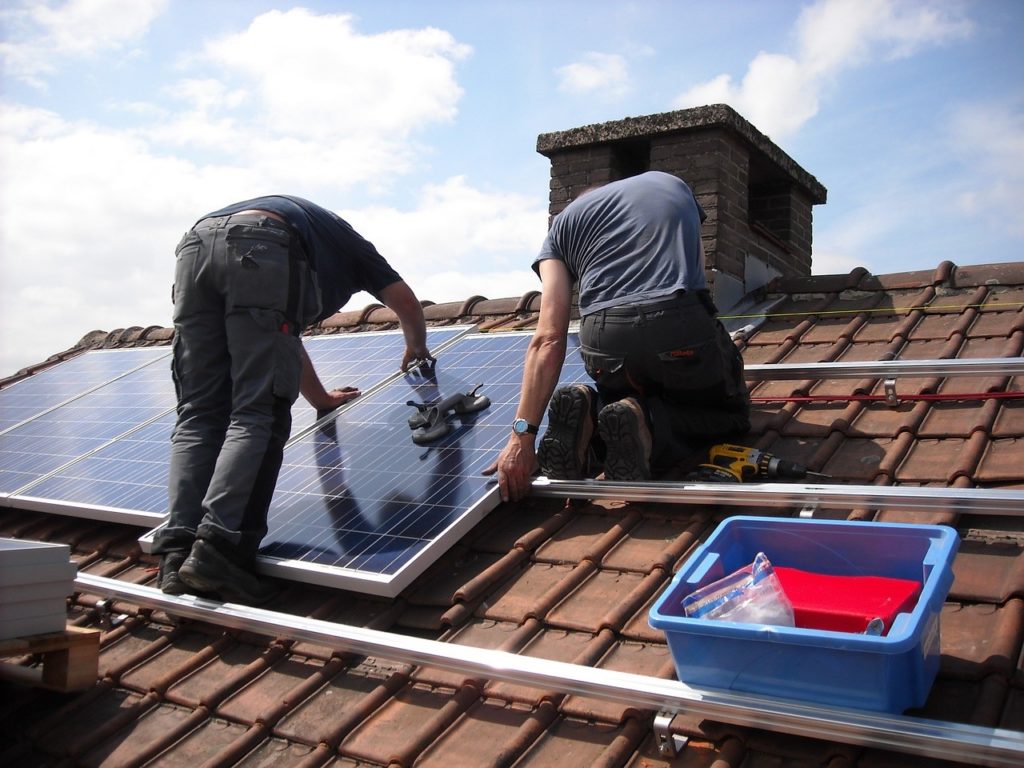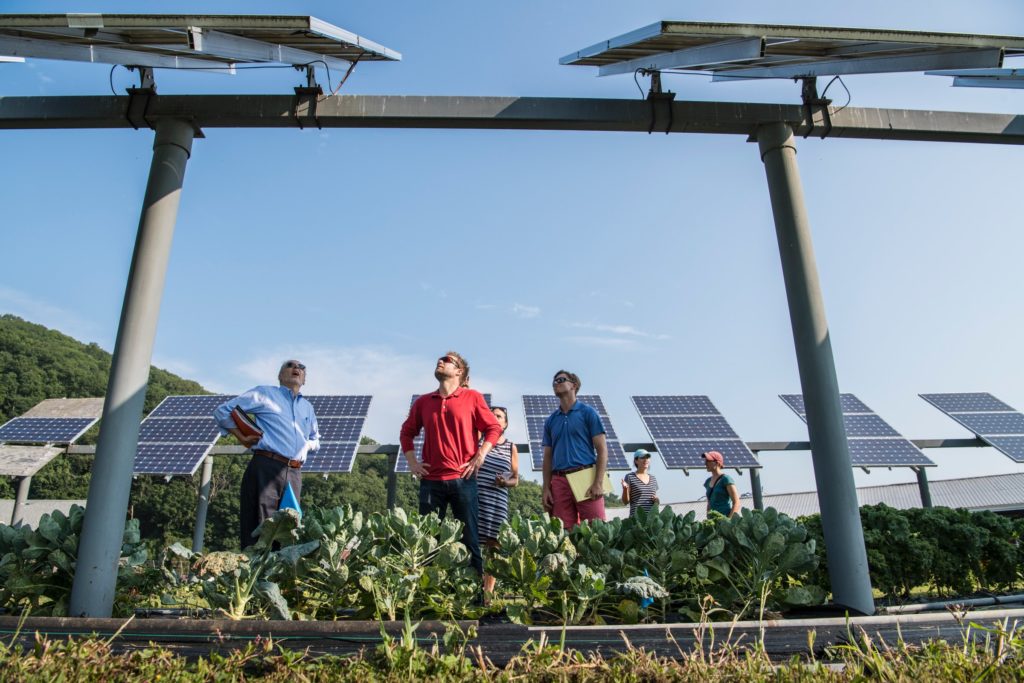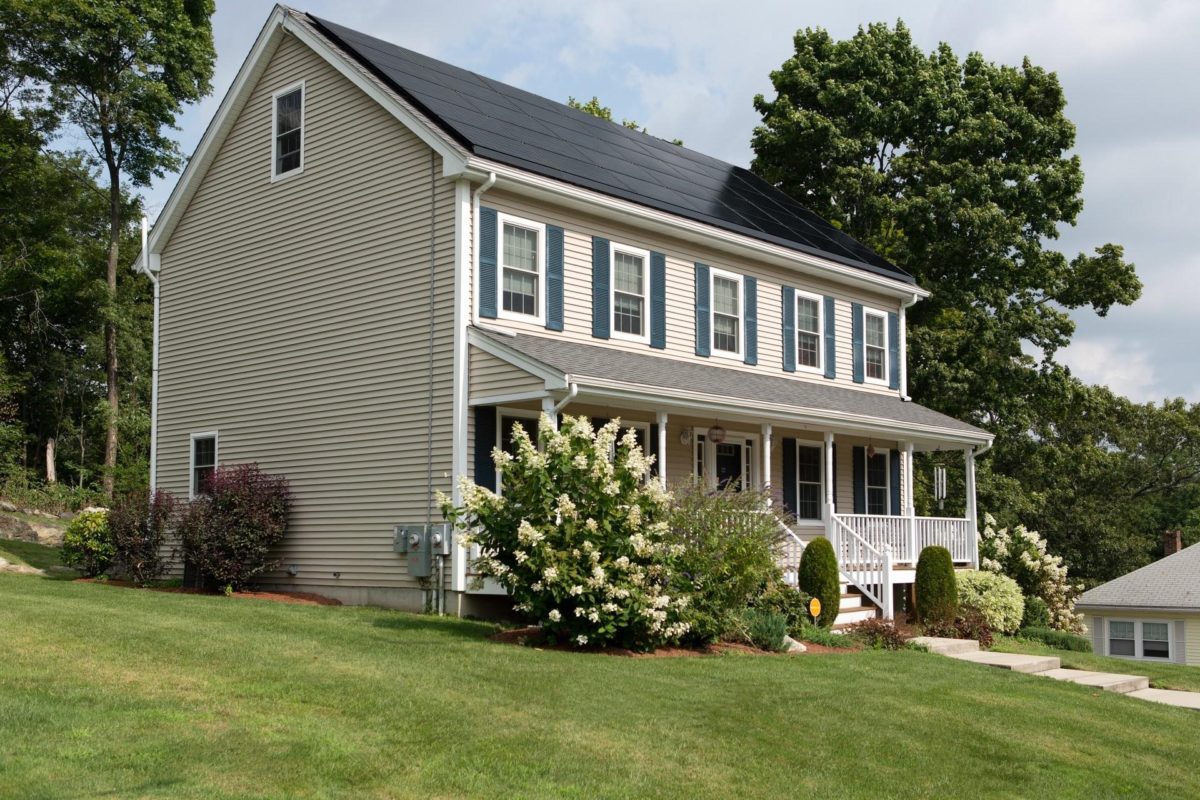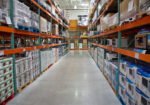Am I a suitable candidate for solar panels?
An ideal roof for solar panels is facing northeast or west and has a 22-23 degree slope. The tiles are also covered in a colorbond that prevents cracking. However, most roofs aren’t perfect for solar panel installation, but that doesn’t mean your installer can’t use tilter racking to achieve optimal angle.

What are the types of solar panel systems?
There are on-grind and off-grid solar systems on the market today. Off-grid systems provide your home with electricity separate from your country’s network. On-grid systems allow you to use electricity from the grid in case you experience shortages of clean energy. A smart meter will measure how much electricity you import and export, so you can get an accurate bill. There are also hybrid models that mix these two main types of systems.
What is included in a solar panel system?
The most important item in the list is panels that go on your roof. These panels absorb sunlight during the day and convert it into energy. Since the energy that comes from the sun is not the right type to be used by our appliances and electronics, you need an inverter that will make things right. Something efficient like a reliable sma inverter will turn unusable direct current and turn it into usable alternating current. Most inverters are installed outside, but if you choose the right model, it will not mess with your aesthetics. Sma inverters are both efficient and aesthetically pleasing, so you can freely install them in a visible spot. We shouldn’t forget that keeping the solar panels in a steady good condition requires a regular solar panel maintenance.
Can I stock energy?
Yes, you can collect power during the day and save it for later use, but you need a battery for that. Luckily, home batteries are available for purchase, so you can try out many different types of power-saving. Also, most home batteries are stackable, so you can include multiple batteries to satisfy your storage needs.
How many panels do I need?

This information depends on your energy consumption. The best way to calculate how much power you need to produce is to take a look at your bills. Roughly, take your quarterly bill, divide it by 100 and you’ll get the size of your system in kW. Here’s an example: $650/100=6.5 kWh. Most Tier 1 panels are somewhere between 270 and 310W, so if you choose a 285W panel for your roof, you’ll need about 23 panels to produce your required 6.5 kWh.
What affects efficiency?
There are various factors that can affect the efficiency of your system. Positioning, angling, shadows, and contamination (dirt and dust) can all reduce the amount of electricity your system produces. An experienced installer will find the best position for your panels and even recommend trimming some trees in order to minimize shade during the sunniest times of the day. Your panels can also work on a cloudy day, but diffused light that passes through the clouds will lower the efficiency of your system.
When will my system pay for itself?
It’s time for math again. Let’s say you use 1,000 kWh every month. If the price of energy is 12 cents per kWh, your monthly bill will come to $120 or $1440 every year. Now, let’s see what your solar panel system can do for your money-saving abilities. A large solar panel system that can produce 8.28 kW costs about $12,000 and it could cover 100% of your energy requirements. If you happen to live in a state that helps with taxes when it comes to green energy, you can expect a nice shave off the price and end up paying just $9,000 for the equipment. However, if you generate your own power, you’ll save $1440 every year, which means you’ll need a little over 6 years to break even on your system. This payback period will pass faster than you think and you’ll start earning money. And since most panels have a 25-year warranty, you can expect that your investment will pay for itself 4 or 5 times. That is not all though. You can even prolong the life of your home energy systems by investing in a home warranty plan. Home warranty plans are an awesome way to reduce the cost of any repairs if your system breaks or becomes faulty. Your home warranty provider will help you get in touch with a local contractor, and this will ensure that any issues are dealt with promptly. Most American homeowners make use of home warranty plans nowadays, so whether you live in Florida or California, you can read more about the advantages of taking out a home warranty plan by visiting the First American website. From a financial standpoint, installing a solar energy system is a great investment- solar panels las vegas cost.
If you’re planning to stay in your home for a long time, installing solar panels can be a great idea that will not only reduce your energy bills but also help us all say hello to a greener and brighter future.















